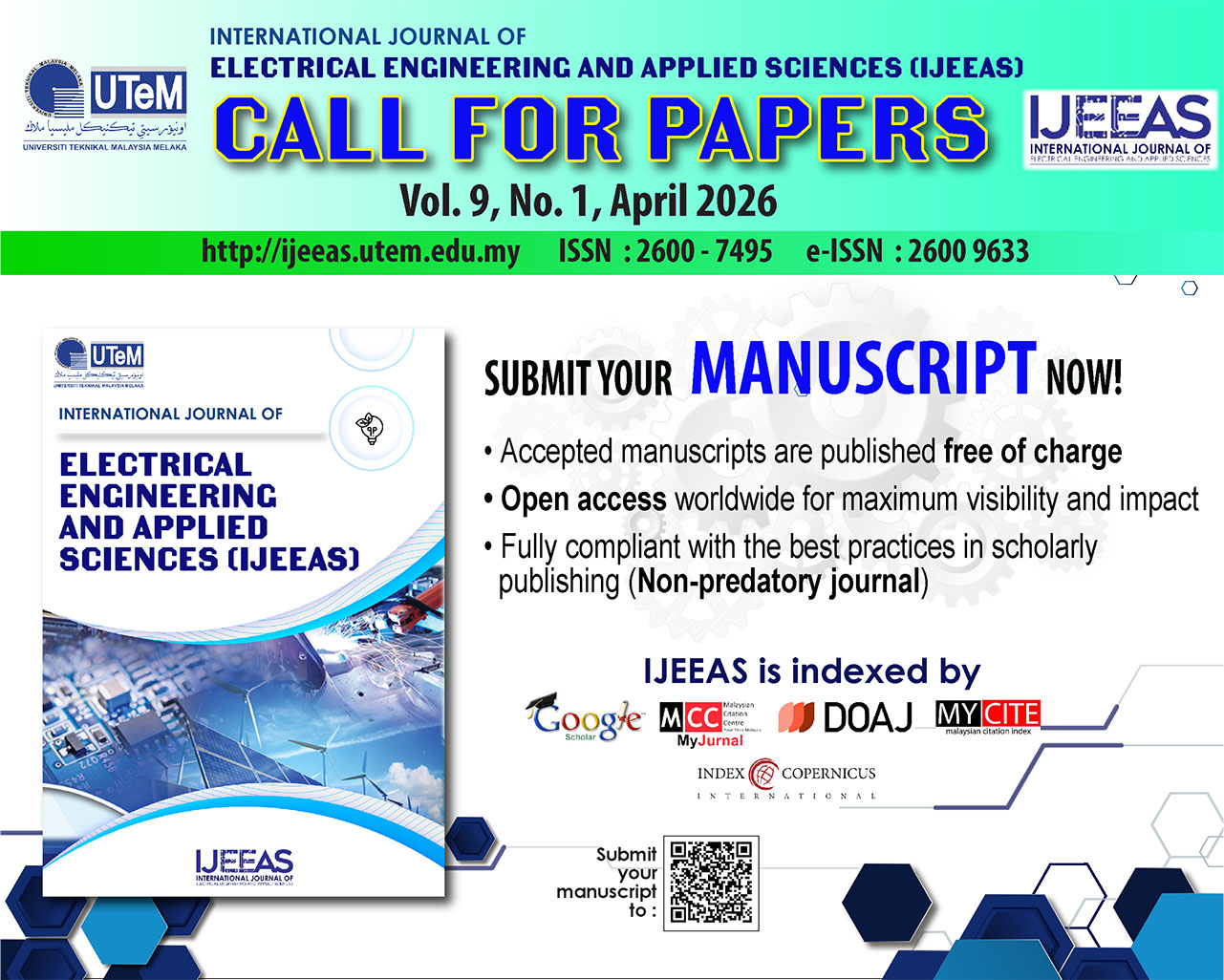Improving Stand-Alone Hybrid Generation System Using Sliding Mode Control Approach
Abstract
This paper presents a robust sliding mode control (SMC) to improve the power quality of a stand-alone hybrid power system. The considered hybrid system includes photovoltaic (PV), wind turbine (WT) based on permanent magnet synchronous generator (PMSG) and battery energy storage systems (BESS). The optimization of the photovoltaic system is powered by a set of Adaptive Perturbation and Observation Algorithm Method (APOAM) to search optimum working of this source. A SMC is utilized to manage the PV voltage to achieve the Maximum Power Point (MPP) by altering the obligation duty cycle. For the wind generation system, a maximum power extraction based on a SMC is proposed for the permanent magnet synchronous generator (PMSG). This study develops non-linear controllers with an SMC method for a PV/Wind/battery system including a boost converter, bidirectional buck-boost converter and voltage source inverter (VSI). Performance verification in MATLAB/Simulink have obviously exhibited the robustness and the performance of the control strategies developed for the power converters framework compared with the conventional PI controller. It is observed from the simulation results that the average THD value is very small compared to the PI controller, around 3.1% compared to 3.91%. Hence, the power quality and the stability of the whole hybrid system are widely improved using SMC compared to other classical PI techniques.
Downloads
Downloads
Published
How to Cite
Issue
Section
License
Authors who publish with this journal agree to the following terms:
- Authors retain copyright and grant the journal right of first publication with the work simultaneously licensed under a Creative Commons Attribution License that allows others to share the work with an acknowledgement of the work's authorship and initial publication in this journal.
- Authors are able to enter into separate, additional contractual arrangements for the non-exclusive distribution of the journal's published version of the work (e.g., post it to an institutional repository or publish it in a book), with an acknowledgement of its initial publication in this journal.
- Authors are permitted and encouraged to post their work online (e.g., in institutional repositories or on their website) prior to and during the submission process, as it can lead to productive exchanges, as well as earlier and greater citation of published work (See The Effect of Open Access).







